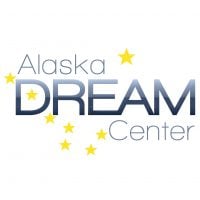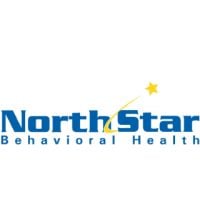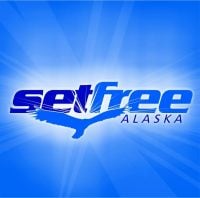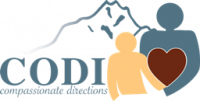List of Alcohol and Drug Treatment Facilities in Palmer, AK
Palmer, Alaska has a significant drug addiction and abuse problem. The reasons for high rates of drug addiction here could be attributed to various factors. One reason is that the area is rural and people may turn to drugs as a way to escape boredom. Additionally, the weather is often harsh, which can increase feelings of isolation and depression.
The most popular drugs in Palmer are marijuana, cocaine, and methamphetamine. However, prescription drugs are also abused in the community. In particular, opioids such as OxyContin and Vicodin are commonly abused. These drugs are often obtained illegally and then sold on the street. Drug addiction can have a devastating effect on people’s lives. If you are struggling with addiction, it is important to get help.
There are plenty of Palmer, facilities in our directory that are available to enable you or your partner to lead a safe, clean and drug-free life. There are a number of different rehab services available for the treatment of addiction in Palmer.
Contact Your Alaska Admissions Expert
We will help you find treatment based on your location, budget, and specific needs and help you get started safely.
Free + Confidential Consultation
Browse 7 Centers in Palmer, Alaska
The Alaska Dream Center is a drug rehab facility that specializes in treating those suffering from addiction and mental health issues.
North Star Palmer - Summit Program is a residential treatment center in Palmer, Alaska that offers comprehensive addiction and substance abuse treatment services, including individual and group therapy, community meetings, health and wellness support, and life-skills training, with a holistic approach to healing.

Alaska Family Services
Alaska Family Services offers tailored evidence-based treatment to support individuals and families with substance use and mental health needs, encouraging clients to take an active role in their own recovery journey.
UnavailableSet Free Alaska - Palmer is a comprehensive addiction treatment center in Palmer, Alaska that offers evidence-based treatments, individualized care plans, and a range of therapies for alcohol and drug addiction as well as co-occurring mental health issues.

The Co Occurring Disorders Institute (CODI) in Alaska is an outpatient facility that offers comprehensive treatment for substance abuse and mental health disorders, using individualized treatment plans, evidence-based practices, and specialized programs for veterans and trauma.
Akeela-Palmer is a rehabilitation facility in Palmer, Alaska that offers a wide range of addiction and substance abuse services with evidence-based treatment approaches, specialized and individualized care, on-site medical team, family and patient counseling, and a supportive environment to help clients achieve sobriety and lead fulfilling lives.

Daybreak
Daybreak in Palmer, Alaska is a behavioral health center that provides comprehensive addiction and substance abuse treatment services, including individual and group therapy, family counseling, educational workshops, detoxification and medical support, and specialized mental health care.
Drug and Alcohol Treatment in Palmer, AK
The best drug, alcohol, and detox treatment center for you will depend on your individual needs and situation. Some factors to consider include the type of addiction, duration of addiction, and severity of the addiction.
No matter what type of drug treatment you choose, it’s important to find a facility that offers evidence-based treatment. This means that the program uses proven methods to help you overcome your addiction.
What Types of Treatment Are Available in Palmer, Alaska?
There are a number of drug treatment options available in Palmer, AK. Some of the most common types of treatment include inpatient rehab, outpatient rehab, and detox.
Inpatient rehab is a residential treatment program where you live at the facility for the duration of your treatment. This type of program is ideal for people who need intensive care and support.
Outpatient rehab is a less-intensive type of treatment where you visit the facility a few times per week. This type of program is ideal for people who are unable to take time off from work or family obligations.
Detox is a short-term program that helps you safely withdraw from drugs. This type of program is the first step in treatment and should be supervised by a medical professional.
Drug Abuse Statistics in Palmer, Alaska
The Assessment report from the Substance Abuse and Mental Health Services Administration (SAMHSA) indicates that nearly 8% of the Palmer population over the age of 12 abused or were dependent on illicit drugs in 2018. The most commonly abused drug in Palmer, AK is marijuana, which was reported by 20% of people who abuse drugs.
Palmer, Alaska has been hit hard by the opioid epidemic in recent years. In 2019, there were 25 opioid-related overdose deaths in the city. This is a significant increase from the 15 opioid-related overdose deaths that occurred in 2017.
- About 18% of high school students in Palmer reported using an illicit drug at least once in their lives.
- The rate of drug-related hospitalizations increases by about 67% from 2006 to 2016.
- 24% of drug-related arrests in Palmer were for the possession of marijuana.
- The average age of first-time drug users in Palmer is 16.
Additional Treatment Centers in Alaska
Alaska is enduring a multi-faceted drug and alcohol abuse problem. Heroin-related overdoses are 50% higher in Alaska than in the rest of the United States. Methamphetamine use is a major contributing factor to violent crime in Alaska. More than 60,000 Alaskans need some sort of treatment for substance abuse and/or addiction.
Still haven't found the right recovery center? Browse nearby Alaska cities.
- Kenai, AK (102.2 mi.)
- Perryville, AK (532.4 mi.)
- Ninilchik, AK (138.7 mi.)
- Homer, AK (160.6 mi.)
- Ketchikan, AK (768.1 mi.)
- Nome, AK (540.7 mi.)
- Dillingham, AK (363.5 mi.)
- Saint Paul Island, AK (800.2 mi.)
- Sitka, AK (583.5 mi.)
- Seward, AK (108.7 mi.)
- Girdwood, AK (49.7 mi.)
- Palmer, AK (6.6 mi.)
- Anchorage, AK (69)
- Fairbanks, AK (29)
- Juneau, AK (22)
- Wasilla, AK (15)
- Ketchikan, AK (10)
- Kenai, AK (9)
- Sitka, AK (8)
- Palmer, AK (7)
How to Help Someone Who Doesn’t Want Rehab
First, you need to understand that the person who doesn’t want rehab might be in denial about their addiction. It’s possible that they don’t even see their addiction as a problem. In this case, you’ll need to be very patient and understanding as you work to get them help.
There are a few things you can do to try to convince the person to get help:
1. Show them how their addiction is affecting their life and the lives of those around them.
2. Point out how rehab can help them overcome their addiction and return to a healthy lifestyle.
3. Let them know that you support them and will be there for them during rehab.
4. Offer to go with them to their first appointment at the treatment center.
There are ways you can help a loved one who doesn’t want rehab. First and foremost, you should offer your support and love unconditionally. Addiction can be incredibly isolating, so let your loved ones know that you’re always there for them.
Should You Go to Rehab Near or Far Away From Home
There are pros and cons to both rehabs near and far from home. The main benefit of rehab near home is that it’s much easier for friends and family to visit. This can be important for moral support, especially in the early days of rehab. Additionally, if you’re close to home you’re more likely to have access to a robust support network once you’ve completed rehab.
The main benefit of rehab far from home is that it can be a total lifestyle change. This can be helpful for people who have trouble breaking old habits or who have a lot of distractions at home. Additionally, being away from home can provide some much-needed space and privacy during a time when personal relationships may be strained.
What to Look for in a Drug and Alcohol Treatment Center
There are a few key things to look for when seeking a drug and alcohol treatment center.
It’s important to make sure that the center has experience treating the specific type of addiction you’re struggling with. Some centers specialize in treating certain types of addictions (like opioid addiction), while others are more generalized.
You should find a center that offers a comprehensive approach to treatment. This means that the center should offer both detox and rehabilitation services, as well as aftercare support once you’ve completed the program.
Here are some things you should look for when choosing a treatment center, including:
1. A center that offers a variety of treatment options.
2. A center with a qualified staff who have experience treating addiction and co-occurring disorders.
3. A center that is accredited by or has a good reputation with organizations like the Joint Commission or the National Association of Addiction Treatment Providers (NAATP).
4. A center that offers evidence-based treatment methods.
5. A center that has a good reputation and offers a sliding scale fee so that it’s affordable for everyone.
What to Expect in Drug Rehab
There are a few things you can expect when you enter drug rehab. Some programs use a 12-step approach, while others use alternative methods such as cognitive-behavioral therapy or holistic therapies.
The first thing you should expect is a comprehensive assessment of your addiction and mental health. This will help the staff identify the best treatment plan for you.
You should also expect to participate in group therapy sessions, as well as individual therapy sessions. In group therapy, you’ll discuss your addiction with other people who are struggling with the same issues. This can be a helpful way to gain support and insight from others who understand what you’re going through.
You should also expect to participate in educational lectures about addiction and recovery. These lectures can provide valuable information about how to stay sober once you’ve completed rehab.
Finally, you should expect to receive aftercare support once you’ve completed the program. This can include things like therapy sessions, peer support groups, and 12-step meetings.
Relapse is a common occurrence in drug rehab, so you should be prepared for it. However, with the right aftercare support, you can increase your chances of staying sober.
